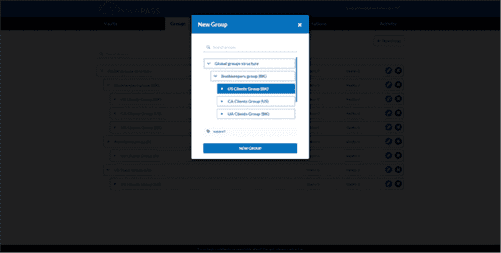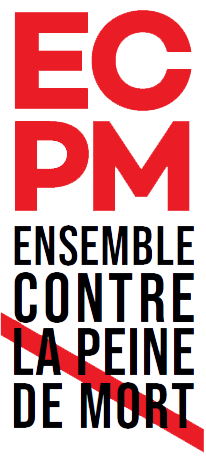All of this makes JSON an important step towards user-friendly computing. Today, many prefer it to XML, and the JSON data format is used by a number of NoSQL data stores. I’m not a database expert, so I can’t tell for the life of me which way to go. I would really appreciate it if you could give some advice on which one to consider and why.
Much of the discussion in the computer science realm is about isolation levels in database transactions. PostgreSQL defaults to the read committed isolation level, and allows users to tune that up to the serializable isolation level. MongoDB’s document data model maps naturally to objects in application code, making it simple for developers to learn and use. Documents give you the ability to represent hierarchical relationships to store arrays and other more complex structures easily.
Language & Syntax
Additionally, MongoDB’s extensive documentation, vibrant community, and wealth of online resources contribute to a supportive ecosystem that facilitates learning and problem-solving. One or more fields may be written in a single operation, including updates to multiple subdocuments and elements of an array. Any errors will trigger the update operation to roll back, reverting the change and ensuring that clients receive a consistent view of the document. Additionally, as there’s no support for joins, MongoDB databases are oversupplied with data — sometimes duplicate — hence heavily burdening the memory.

Data that behaves like excel spreadsheets and fits nicely in rows and is subject to aggregate calculations is better stored in a SQL database of which postgresql is only one of several good choices. On top of this, MongoDB offers support for various programming languages. Idiomatic drivers are available for more than a dozen languages, but the MongoDB community has contributed plenty of others.
Create a database
Basically, you can dump data into the database however it comes, without having to adapt it to any specialized database language (like SQL). You can nest fields in a data record, or add different fields to individual data records as and when you need. The example you cite seems to be a straightforward row/column type problem. You will find the SQL syntax is much less arcane than the query syntax for MongoDB. Node has many things to recommend it and the toolset has matured significantly in the past year. I would recommend using the monogoose npm package as it reduces the amount of boilerplate code that is required with native mongodb and I have not noticed any performance degradation.
- The primary aim was to enable the developers to store all their documents easily and reliably but a lot of issues were there some of which even exist today.
- MongoDB and PostgreSQL are the two most standard databases that are used for the enterprise application.
- But advanced techniques are available too, such as SP-Gist, GiST, GIN, KNN Gist, and BRIN, spanning indexes and bloom filters.
- Write-ahead logs enable sharing the changes made with the replica nodes, hence making asynchronous replication possible.
NoSQL databases are generally simpler by nature, so MongoDB is relatively easy to learn for those with any prior programming experience. PostgreSQL uses joins to combine data from multiple tables into a single table. As long as you have 2 tables, you can use joins to combine them in PostgreSQL. Similar to traditional SQL, there are 4 types of joins in PostgreSQL- Inner, Left, Right, and Full Join. If you want all the data from both tables into a single table, you can use a Full Join.
MongoDB vs. PostgreSQL: Detailed Comparison of Database Structures
They typically need to be reshaped by database administrators via an intermediated process, slowing the overall flow of development. As PostgreSQL depends on a scale-up strategy for scaling writes or data volumes, it has to take full advantage of the computing resources made available to it. PostgreSQL achieves this via multiple indexing and concurrency strategies. As MongoDB was designed to scale out, use cases needing extremely fast queries and vast amounts of data (or both) may be handled by building ever larger clusters comprising small machines.

Our no-code data pipeline platform comes with out-of-the-box connectors for both MongoDB vs. PostgreSQL, helping you unify your data and gain more meaningful insights from your data warehouse. MongoDB offers community mongodb or postgresql support, tutorials, and, for a price, full training and upgrading under the supervision of a support engineer. MongoDB also offers an On-Premise pricing model with MongoDB Enterprise Advanced edition.
How To Use mongodump for MongoDB Backups
If you’re searching for a database, you’ll probably come across several vendors, two of which are MongoDB and PostgreSQL. Although you might see the two database applications compared, their engines and design are very different. When choosing a database, you should decide based on the type of data you have and the way it must be retrieved. The object portion of this database relates to the varied extensions allowing it to incorporate alternative types of data, including JSON data objects, XML, and key/value stores.
MongoDB allows any field of a document, including those deeply nested in arrays and subdocuments, to be indexed and efficiently queried. For instance, you want to build a simple visitor management application where you have to update the information of visitors present inside the building at any given point of time. An event driven architecture would be much suited, where we could send an event as soon as any visitor walks into the building and is checked in by the receptionist. PostgreSQL is a rock solid, open source, enterprise-grade SQL database that has been expanding its capabilities for 30 years. Everything you would ever want from a relational database is present in PostgreSQL.
Method 2 aka The Easy Way: Using RestApp to pipe Data from MongoDB to PostgreSQL
Learn more about them, how they differ, and how to determine which one is right for you. Also, if viewed in terms of an average basis, MongoDB has a better uptime. As per several experts, MongoDB is capable to cut down a lot of complexities from the development. Actually, controls can be considered for this and there are certain dynamic schemes that bring a lot of agility. MongoDB is capable to offer validation of documents which makes it an ideal choice for a very large number of organizations all over the world. Another best thing is storing arrays and representing the hierarchical relations is not at all a big deal.

Thanks to the efforts of MongoDB engineering and the community, we have built out a complete platform to serve the needs of developers. The plumbing that makes MongoDB scalable is based on the idea of intelligently partitioning (sharding) data across instances in the cluster. MongoDB does not break documents apart; documents are independent units which makes it easier to distribute them across multiple servers while preserving data locality. In a document database, a developer or team can own documents or portions of documents and evolve them as needed, without intermediation and complex dependency chains between different teams.
MongoDB: The Document Database That Has Come So Far
You can take advantage of real-time aggregation, ad-hoc queries, and rich indexing to give powerful programmatic ways to access and examine data of all structure types. There are other benefits of using Integrate.io when choosing between MongoDB vs. PostgreSQL. The platform has a unique pricing model that charges you for the number of connectors you use and not the data you consume. PostgreSQL https://www.globalcloudteam.com/ is a 100% free and open-source ORD (object-relational database) that dates back to 1987, making it significantly older than MongoDB. Instead of storing data like documents, the database stores it as structured objects. Also, if you have a flat, tabular data model that isn’t going to change very often and doesn’t need to scale-out, relational databases and SQL can be a powerful choice.
